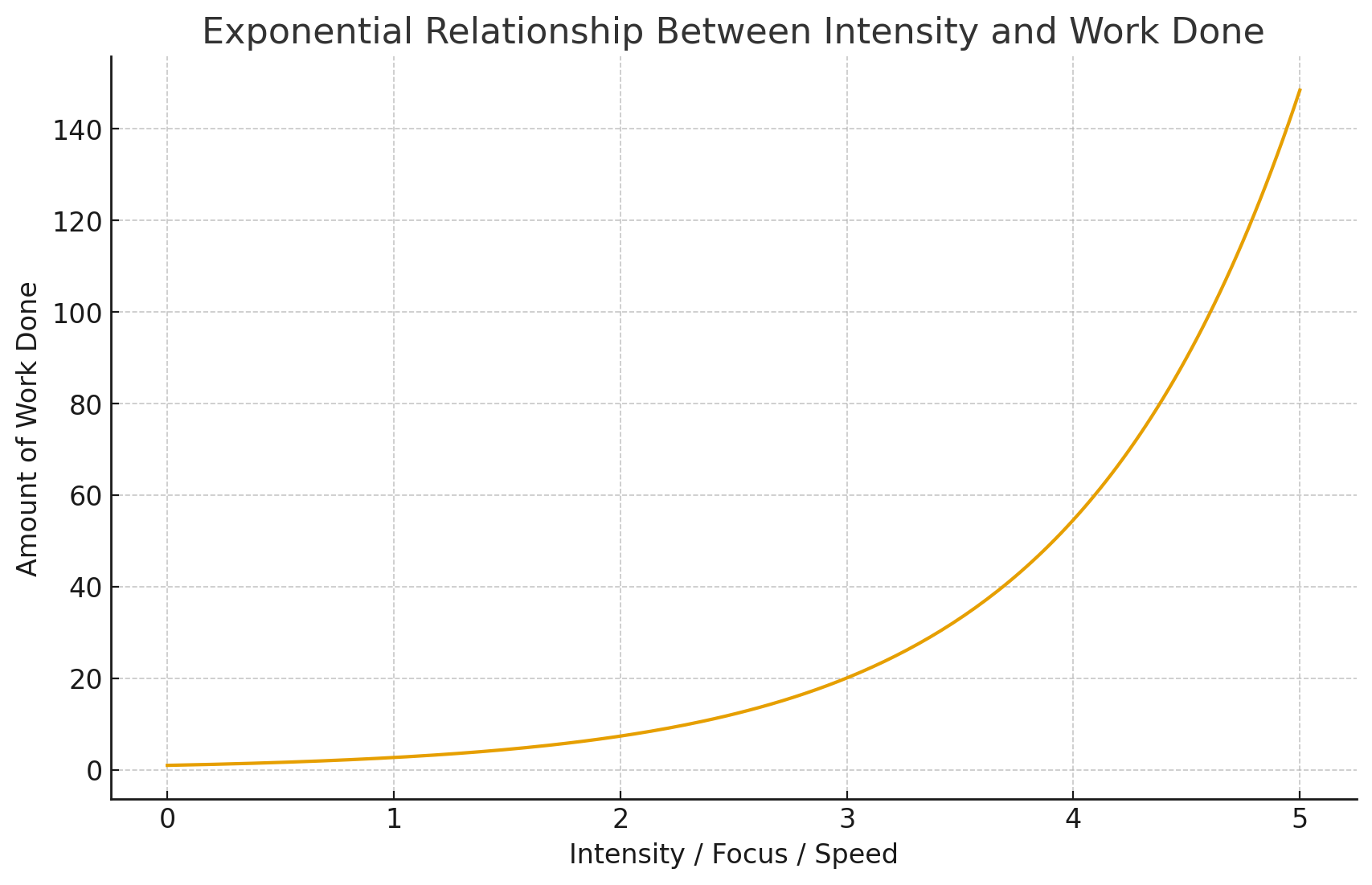problem solving
When approaching any problem I've noticed that progress follows the Pareto Principle. The rule in this context states that 80% of the progress comes from 20% of the time spent working (which implies that around 80% of the time you spend you're essentially wasting). The funny thing about trying to "bend" this curve is that the more efficient you get at solving problems your previous "20%" effort becomes the new "80%" of time wasted. I suspect that in the limit this vanishes (100% of the time spent generates 100% of the progress) but—in general—not all time spent working is uniform.
If you plot something like "intensity/focus/speed" on the x-axis and amount of work completed it would look something like this:

This begs the question… what kind of work comprises this efficient 20%? What makes this kind of work special? How can I do more of this kind of work? Understanding this would—of course—give back hours of my life!
From what I've noticed in the past ~5 months at Meta I think I've gotten better at identifying the things that generate this kind of work. All of the following must be present otherwise high quality work (probably) won't get done:
1. Intent
Intent is the foundation for productivity. For example, if you are solving a difficult problem and you don't intend on giving your best effort then you're likely going to be uninterested in the problem or not appreciate the complexity. This seems simple but I think for a majority of the time I'm not truly intending on giving my true best effort for each problem. This may be good because doing so may actually burn me out but I think being more aware of my intent when approaching problems could be much better.
2. Environment
Setting the environment is crucial. To do my best work I must be in a setting that is completely quiet with no distractions. I believe that this is probably true for most people which is why trying to do deep work in an office is next to impossible (I just use those days to chat and meet people and do deep work at home).
3. Speed
This might be an underrated reason for deep work. I think having a tight feedback loop between input and output is critical to sustaining focus for long periods of time. In a way, being able to work fast gives you a feeling of control over your machine (in a non-maniacal way I promise) which makes you feel really good! This means learning key binds for common operations (yes I'm talking about vim) as they allow you to shorten the time between idea and execution. Every second of delay between those two results in fatigue and forgetting which is catastrophic when you're trying to set up important experiments, analyze data and generate hypotheses. In a way, you're always fighting against forgetting crucial ideas and insights which means that speed is the only way to counteract this force.
I like to think about this in the lens of an airplane. Technically a plane is always "falling" but it's going too fast to fall which is what makes it fly.
4. A goal
I want to say that this is the most important, but the others are all necessary. Maybe it's just the caveman in me but working towards a goal that's achievable within the work block vs. working with no real tangible goal are completely different experiences. The former almost feels like I'm hunting for something which is exhilarating while the latter feels like I'm toiling away for no reason.
This problem came up when I first started working because goals became vague. There were no more "tests" or "assignments" to complete. These "tests" and "assignments" now were problems that spanned over months and months and were insurmountable within a couple of days. At first I remember feeling aimless and confused since I knew nothing about the tech stack and I had no real understanding of what was achievable. However, I noticed that by breaking the goals down into week chunks I could break them down into day chunks and then work block chunks. This reignited the feelings I had before in college where I felt like I was hunting down the problem which brought back the feeling of exhilaration!
In general, I think being excited by problem solving is super super important and I think the things I discuss here maximize the chances of being excited for me.